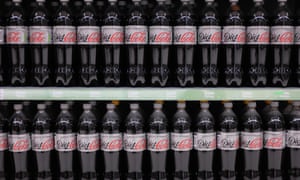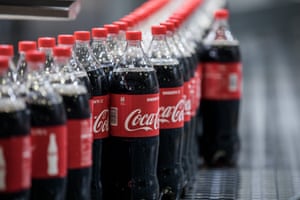Futures Forum: The plastics industry is "incredibly supportive of recycling legislation over a more long-term… reduction of disposable culture."
Futures Forum: Plastic pollution and the invention of 'litter' > or, how the packaging industry avoided responsibility for creating the problem in the first place
It's a pretty inadequate 'solution', considering the huge problem facing us:
Futures Forum: Infinitely recyclable plastic > "As it stands, only 5 per cent of plastics that are manufactured are recycled..."
Plastic pollution has everything to do with our 'linear economy' - as explored by Annie Leonard almost a decade ago:
Futures Forum: The Story of Stuff: "You cannot run a linear system on a finite planet indefinitely"
Here she is writing in yesterday's Guardian:
Our plastic pollution crisis is too big for recycling to fix
Recycling alone will never stem the flow of plastics into our ocean. We must address the problem at the source
Every minute, every single day, the equivalent of a truckload of plastic enters our oceans. In the name of profit and convenience, corporations are literally choking our planet with a substance that does not just “go away” when we toss it into a bin. Since the 1950s, some 8.3bn tons of plastic have been produced worldwide, and to date, only 9% of that has been recycled. Our oceans bear the brunt of our plastics epidemic – up to 12.7m tons of plastic end up in them every year.
Just over a decade ago, I launched the Story of Stuff to help shine a light on the ways we produce, use and dispose of the stuff in our lives. The Story of Stuff is inextricably linked to the story of plastics – the packaging that goes along with those endless purchases. We buy a soda, sip it for a few minutes, and toss its permanent packaging “away”. We eat potato chips, finish them, then throw their permanent packaging “away”. We buy produce, take it out of the unnecessary plastic wrap, then throw its permanent packaging “away”.
The cycle is endless, and it happens countless times every single day. But here’s the catch – there is no “away”. As far as we try to toss a piece of plastic – whether it’s into a recycling bin or not – it does not disappear. Chances are, it ends up polluting our communities, oceans or waterways in some form.
For years, we’ve been conned into thinking the problem of plastic packaging can be solved through better individual action. We’re told that if we simply recycle we’re doing our part. We’re told that if we bring reusable bags to the grocery store, we’re saving the world. We think that if we drink from a reusable bottle, we’re making enough of a difference. But the truth is that we cannot recycle our way out of this mess.
Recycling alone will never stem the flow of plastics into our oceans; we have to get to the source of the problem and slow down the production of all this plastic waste. Think about it: if your home was flooding because you had left the faucet on, your first step wouldn’t be to start mopping. You’d first cut the flooding off at its source – the faucet. In many ways, our plastics problem is no different.
We need corporations – those like Coca-Cola, Unilever, Starbucks and Nestlé that continue to churn out throwaway plastic bottles, cups, and straws – to step up and show real accountability for the mess they’ve created. Drink companies produce over 500bn single-use plastic bottles annually; there is no way that we can recycle our way out of a problem of that scale.
Municipal bag, cup and straw bans like those in Morocco, Iceland, Vancouver and some US cities are a great start, but also not enough. And while clean-up efforts are helpful in addressing litter problems, they can’t begin to touch the problems created by microplastics – the tiny participles of plastic that now permeate our waterways and broader environment.
Not long ago, we existed in a world without throwaway plastic, and we can thrive that way again. The world’s largest corporations – with all their profits and innovation labs – are well positioned to help move us beyond single-use plastics. All over the world people are already innovating toward solutions that focus on reusing and reducing plastics. It’s time to accelerate this process and move beyond half measures and baby steps. Corporations are safe when they can tell us to simply recycle away their pollution.
But we aren’t buying that any more. This is their crisis to tackle. We will continue to do our part, but it’s time for the world’s largest corporations to do theirs. Some 322m tons of plastic were produced in 2015, and that number is expected to double by 2025. The good news is that we are at a turning point. All over the world, people and businesses are waking up to the dangers created by single-use plastic. Now, we must demand a new era that prioritizes people and planet over profit and convenience.
- Annie Leonard is the executive director of Greenpeace USA
.
.
.


No comments:
Post a Comment